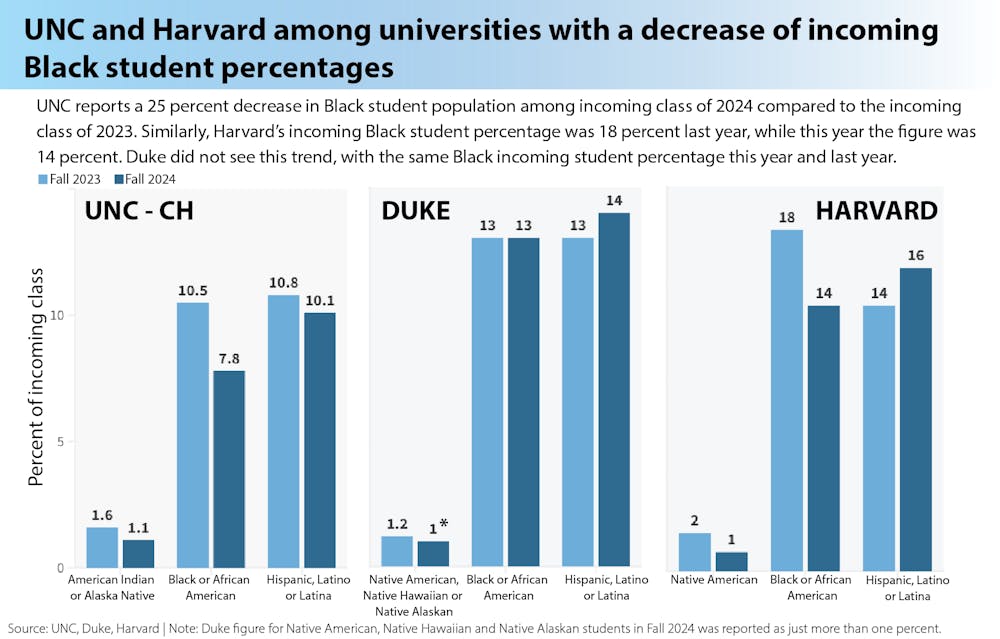UNC's 2024 admissions data released on Sept. 5 confirmed some community members' concerns that the 2023 Students for Fair Admissions Supreme Court case would impact diversity at UNC.
The 2023-24 year was the first University admissions cycle following the case. UNC acted as the public university represented in the case. The case ruled that affirmative action, or race-conscious admissions, can not be a factor in college admission cycles.
In fall 2024, UNC admitted fewer percentages of Black and African American; Hispanic, Latino or Latina; and American Indian or Alaska Native identifying students, with percentages of Black students in the class dropping around 25 percent from 2023.
Julian Taylor, a senior and executive member of the Affirmative Action Coalition at UNC-Chapel Hill, said “I've heard shared sentiment in the Black community that just by being on campus, you can feel that there are far fewer Black first-years.”
“The affirmative action ruling did exactly what we thought it would do,” Taylor said.
Rachelle Feldman, UNC vice provost for enrollment, said in a webinar that it's too soon to tell if affirmative action has affected admissions rates.
After learning affirmative action would not apply to his admissions cycle, UNC first-year Joseph Moore III said he was concerned it would affect his applications.
Moore said he wished there were more people of color on campus, saying that he saw less and less people who looked like him on social media accounts for the class of 2028, as well as fewer posts on accounts for African American UNC students.
“It's hard to come to a university where I don't feel like I'm fully represented, where I have to go out of my way to find somebody who shares my race, who shares my experiences, who shares my lifestyle,” he said.




